
Kinaaldá: Coming of age in traditional Diné ceremony
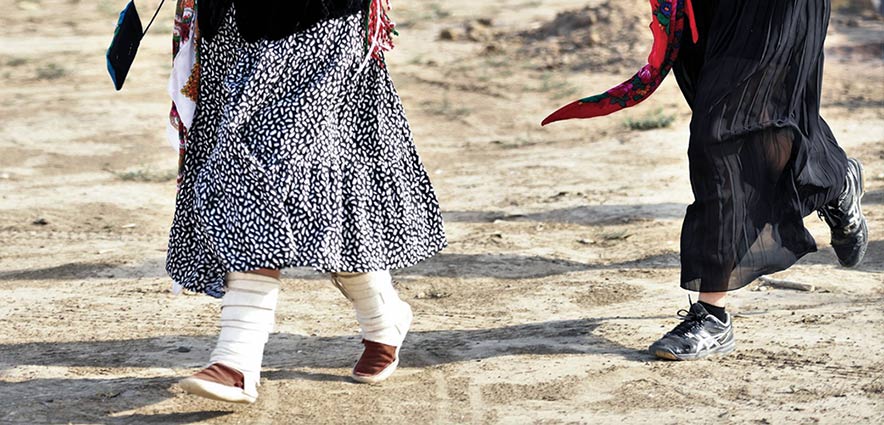
Special to the Times | Bazhnibah
A kinaaldá runs to the east on the evening of the first day. She is wearing Navajo moccasins with leggings, a summer-tiered skirt, a velvet top with a red, green and white sash belt. Following her are friends and relatives. The kinaaldá runs three times a day for four days.
By Bazhnibah
Special to the Times
Kinaaldá – is it a lost tradition or a renewal of a Navajo tradition?
At the start of our Glittering Fourth World, Changing Woman, or Asdzáá Nádłeehé, initiated the first kinaaldá. A kinaaldá is the “rite of passage” for a Navajo girl becoming a woman.
According to Navajo stories, Changing Woman was discovered as a baby atop a misty Sisnaajiní, or Mt. Blanca, by deities.
Changing Woman was brought to Gobernador Knob, or Ch’óołii’í, where in four or 12 days, she became Kinaaldá. First Man and First Woman deities decided that she would have a puberty ceremony in hopes that she will be a Holy One able to reproduce children in human form.
The ceremony was simple. Prayers were said. Songs were sung. Protocols were established. Changing Woman was named White Shell Woman after or during the ceremony.
What does she have to do with today’s kinaaldá?
Changing Woman is thought to be a prominent female deity that changed humankind in the Navajo creation stories. She stands for the ideals of Navajo women. She embodies beauty, strength, generosity and humanity. So, to honor her and the Holy Ones, this Navajo puberty ceremony continues today.
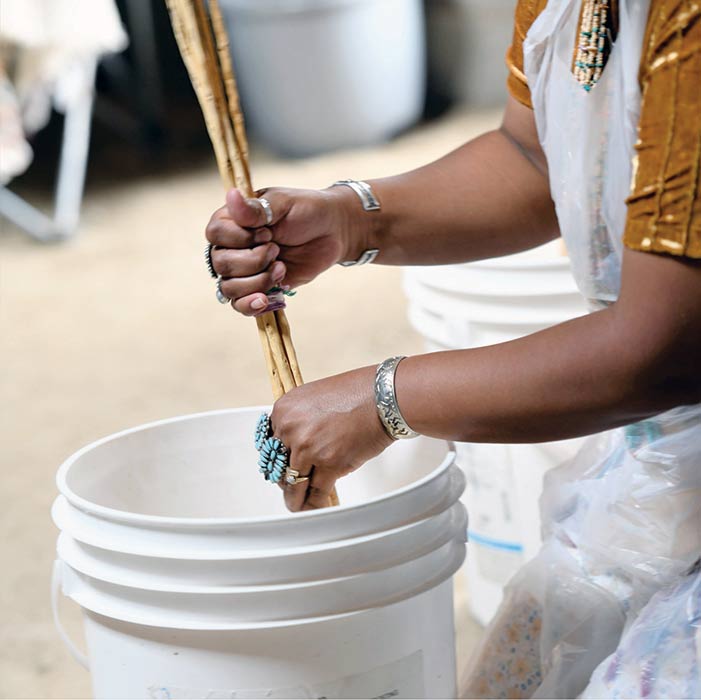
Special to the Times | Bazhnibah
A woman is stirring cornmeal in a bucket. This bucket will be among a dozen or so buckets used to make one corn cake.
Kinaaldá is an important, if not the most important, life-changing event in a Navajo girl’s life. It is not a ceremony just for the four days, rather the girl is taught from birth her role as woman and continues throughout her life.
At birth she is acknowledged by the Holy Ones. As an infant, her parents welcome her to the family and, as she grows older, she is taught the Navajo way of life.
Traditionally, a Navajo girl while in her first menstruation period had her kinaaldá immediately. Nowadays, families prepare and perform within weeks post-menstruation.
The girl, before kinaaldá, has a role as child and is discovering the transition to woman. Phases in the adolescent period can be both confusing yet intriguing to the girl, not yet a woman. She is still a child with set expectations. In Erickson’s eight stages of development, stage 5 is the adolescent phase where the child is said to have identity versus identity confusion.
It is a time of self-discovery or “finding self.” Accordingly, the girl in transition is to let go of the old identity and acknowledge new roles and responsibilities as they emerge. These new roles and commitments can be anxiety producing but with the support of family, peers, and community, the girl becoming a woman will accept her new formation.
The kinaaldá is the perfect rite of passage for the Navajo girl.
The Navajo puberty ceremony is strongly recommended by those who have experienced the Navajo traditional practice of kinaaldá. The girl in four days goes through intense psychological, physical and spiritual changes. These changes continue throughout her adult life but at a slower pace.
The whole family, relatives and the community are participants in the life-changing event. Their support is meaningful for the kinaaldá and for each other as they all share the commitment to the rigorous and transforming tradition.
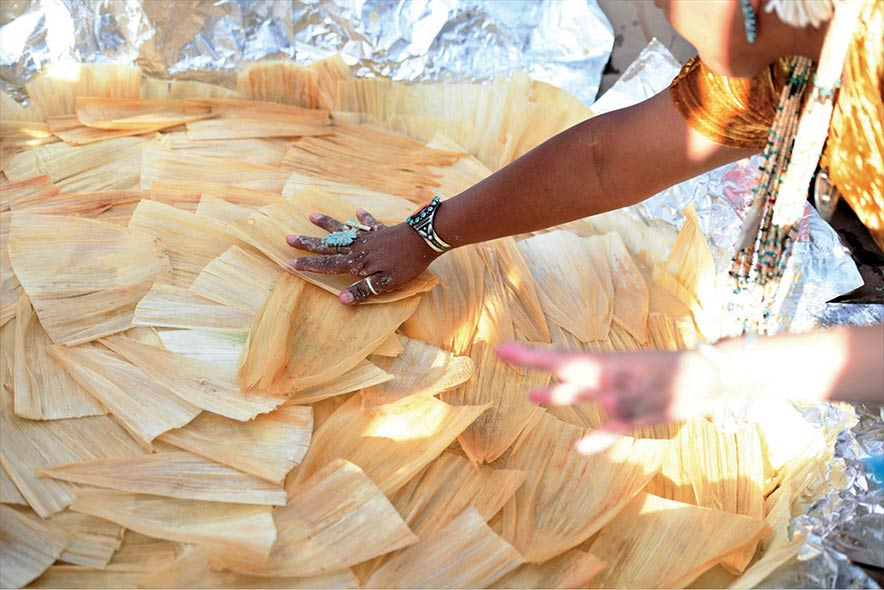
Special to the Times | Bazhnibah
A Navajo young woman places wet cornhusks in a circular and clockwise manner on top of the cornmeal cake to be baked.
A kinaaldá is said to become a well-developed, giving person after going through the ritual. She will be protected and strong for adversities later in life.
Just as Changing Woman is defined by her name, so the Navajo adolescent will be transformed in the spirit of Asdzáá Nádłeehé through her rite of passage.
For the young Navajo women seeking a harmonious life with a career, family and leadership role, the kinaaldá must continue as part of Navajo cultural traditions.
Bazhnibah, aka Ruth Kawano, is a retired registered nurse, a former U.S. Public Health Service captain, a former U.S. Air Force captain, and a former flight nurse. She is currently a writer-photographer.






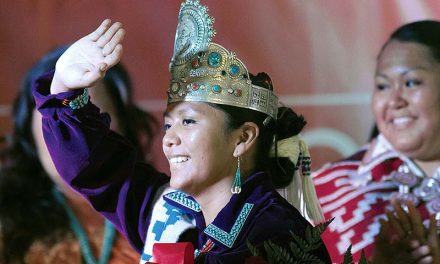

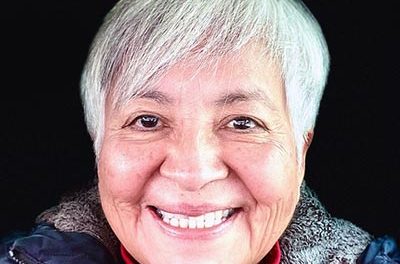
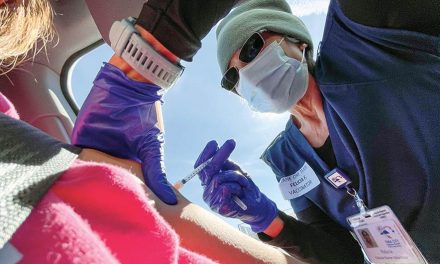

 Highway 264,
Highway 264, I-40, WB @ Winslow
I-40, WB @ Winslow